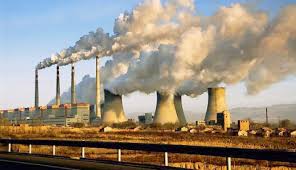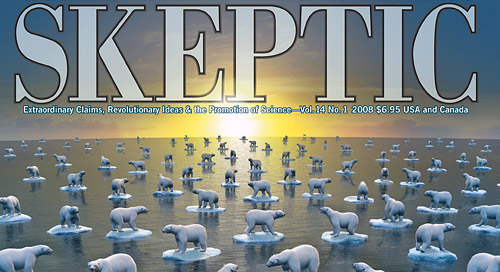 By Ray Rivers
By Ray Rivers
May 28, 2015
BURLINGTON, ON
It is easy to become complacent on a sunny spring day in Burlington. It is easy to ignore the cumulative effect that our lifestyle is having on the planet’s climate. But the TV news tell us about the destruction from increasing levels of tornado, storm and flash floods, as we saw recently in B.C. Then there is California experiencing its worst drought ever. It’s all so depressing that you just want to change the channel.

Developing economies use coal because it is available and it is relatively cheap – we eventually all pay the price.
Blame China, Korea and India for their dirty industrialization policies, using cheap dirty coal to fire their economies and take them out of the dark ages and perhaps into a new one. It is ironic and sad that they started burning coal in a big way just as we learned how bad these carbon emission can be for the atmosphere. Of course we in North America, Australia and even Europe still burn coal (though Ontario has eliminated coal power plants). And you can change the channel but that TV was probably made in Korea.
In the last federal budget, Mr. Harper’s election budget, as every other one of his budgets, has ignored our ever increasing contribution to climate change. And we’re not alone. US presidential contenders, Australia’s dinosauric leader and even the leader of once progressive New Zealand have allowed the global commons to slip almost completely off the political page, as they pursue today’s issues without any consideration of tomorrow..
There are people who still think there is a debate about whether climate change is real, a phenomenon psychologists call being in an echo chamber. They have pre-conceived notions that the environment is a conspiracy, constructed by a ’60’s hippie crowd, to take away their freedom… to pollute – so they just listen to themselves. Why shouldn’t we live the way we always did? These folks are watching the ‘Leave it to Beaver’ channel or something on 100 Huntley Street.

Making a point; speaking for Canadians – is he saying what we want him to say?
Canada’s environment minister pulled some imaginary emissions targets out of the air. But without a hint of a roadmap there is no hope of getting there – though perhaps that is the idea? Just like a New Year’s resolution, they’re soon to be forgotten the next day. So why even bother? And besides, these new numbers pale in comparison to the imaginary numbers the Americans and Europeans have generated.
The 21st annual United Nations Climate Change Conference takes place in Paris this coming December. But you can tune out because all expectations are that we’re looking at another failed conference. The only meaningful attempt at global climate cooperation, the 1997 Kyoto Protocol, was critically wounded when GW Bush took the US, it’s chief architect and player, out of the deal only a couple of years later. After all, he has oil in his blood. And Canada’s own wanna-be-oil-man, our PM, whited-out Canada’s signature on Kyoto as soon as he had nailed his majority government.
So this year’s meeting is featuring something called ‘intended nationally determined contributions’ (INDC). These virtually meaningless theoretical voluntary commitments will be offered up by many of the 194 nations in the global climate change game. But since the national targets will be internationally unenforcible, no party will be held to account. So this meeting in the City of Love will not have much to do with love for the environment, or for our children’s children.
It is the ‘tragedy of the commons’ that brings all these nations together once a year, to keep alive the process that requires nothing short of re-genesis. Whether a common pasture, the oceans’ fisheries or the planet’s atmosphere, the ‘tragedy’ can only be abated or avoided through more governance, not less. And that was what Kyoto was all about. Today we have ISIS and an errant Russia gone rogue to add to the mix, so don’t expect any re-runs this year.
Canada’s excuse is that, despite being one of the highest greenhouse gas (GHG) emitting nations per capita, we are still a relatively small part of the global GHG contribution. That is our echo chamber and we’re sticking to it. Canada rationalizes that doing almost nothing is just OK. Inertia has become our climate change strategy. And business as usual, despite occasional lip service to the contrary, prevails, at least at the federal level.
In fairness, the previous Liberal government did little more than sign onto Kyoto with its ambitious targets, which even they would have had trouble to attain – though the Ontario and Quebec governments did. So maybe targets are important. I’ve always believed that it is better to shoot for a high goal and fail, than to have never shot at all. I mean what kind of hockey player goes out on the ice without the prospect of scoring a slap shot on his/her mind?
 But Canada’s hockey-author, our PM, is just not into the game when it comes to protecting the atmosphere. He was an ardent climate change denier in his opposition days. And his government has stayed pretty true to form on that count. So even if individual Canadians wanted to contribute to the fight against climate change they are leaderless.
But Canada’s hockey-author, our PM, is just not into the game when it comes to protecting the atmosphere. He was an ardent climate change denier in his opposition days. And his government has stayed pretty true to form on that count. So even if individual Canadians wanted to contribute to the fight against climate change they are leaderless.
If your national leader is missing in action on this matter, how does a nation mobilize? My New Zealand friend refers to sic critical lost years. We in Canada will have recorded a lost decade, perhaps it is time to change to change the channel.
Background links:
World’s natural Disasters More Disasters Climate Change Echo More Echo
100 Huntley Street Conference Tragedy of the Commons New Zealand
 Ray Rivers writes weekly on both federal and provincial politics, applying his more than 25 years as a federal bureaucrat to his thinking. Rivers was a candidate for provincial office in Burlington where he ran as a Liberal against Cam Jackson in 1995, the year Mike Harris and the Common Sense Revolution swept the province.
Ray Rivers writes weekly on both federal and provincial politics, applying his more than 25 years as a federal bureaucrat to his thinking. Rivers was a candidate for provincial office in Burlington where he ran as a Liberal against Cam Jackson in 1995, the year Mike Harris and the Common Sense Revolution swept the province.















Ken – thanks for commenting, and for that wonderful cartoon. Gary – I would agree with your characterization of global climate change – but do I really need to move my grandchildren to an island in the South China Sea?. Interestingly I was going to write Chicken Little into the piece, so kind of glad you brought it up. These other threats you raise. except for nuclear armageddon, are things over which we have no control – but we do have some say in retarding, if no longer preventing, significant changes to the earth’s climate. The article wasn’t fatalistic, though there was plenty to regret for what we haven’t done and should have – and we reap what we sow. Still, I am optimistic that we will act as we have occasionally in the past to make it better.
When you realize that most important thing in life is to constantly feel imperilled and insecure there is no dearth of catastrophes to contemplate and satisfy your anxiety and paranoia needs. We are awash in impending doom and end of life as we know it scenarios. Here are just a sampling: asteroids and comets, massive solar flare eruptions, large tectonic plate movements, supervolcanoes, biological pandemics, thermonuclear war terrorism, creeping Islamization, and the flavour de jure, climate change (formerly known as global warming) and still sometimes referred to by the True Believers as “AGW”. There are also a plethora of people who want to tut tut and tsk tsk and demand that we buy into their favourite version of Armaggedon. If one were to chart this as probable serious consequences over the short term (say the next 30 years) against the probability of occurrence we might be in a better position to rationalize what we should really be afraid of. On such a scale I would rank thermonuclear war and biological pandemic at the top of the list. For different reasons such as difficulty in determing timing or how deep and wide spread the consequences the rest would be farther down the list. We cannot predict asteroids, tectonic plate movement, solar flares, volcanoes, we can only hope to try to cope with the mess they make. Likewise, with AGW, we are extremely unlikely to prevent this, but we can cope and mitigate, and efforts in those directions are already. China, for example is constructing islands in the South China Sea suitable for habitation and well out of the way of rising sea levels. Effects of climate change are slow and can be worked on for many decades. It is not a human extinction event like some of the others. There is another one that should be getting more attention; namely, the point at which artificial intelligence surpasses IN All RESPECTS human capabilities and is no longer under human control. The predicted date for the breakout is 2029. We could actually do something to prevent this if people paid closer attention to it and not allow themselves to get too distracted by other dangers. There, I have officially joined the ranks of the Chicken Littles.
I don’t see why you’re being unfair to the PM’s debating wishes.
He JUST WISHES to appear before a SELECT GROUP who like him.
https://thechronicleherald.ca/editorial-cartoon/2015-05-27-editorial-cartoon
It would be encouraging to at least see environmental issues as part of the federal election debates. At present, Harper has refused to take part in all offered debates. Sad!
We’ve already past the point of no return. Terrible future for our children’s children but have no fear, with climate induced wars and famine … most of the world will be dead before the world is no longer habitable. Always look on the bright side of life.